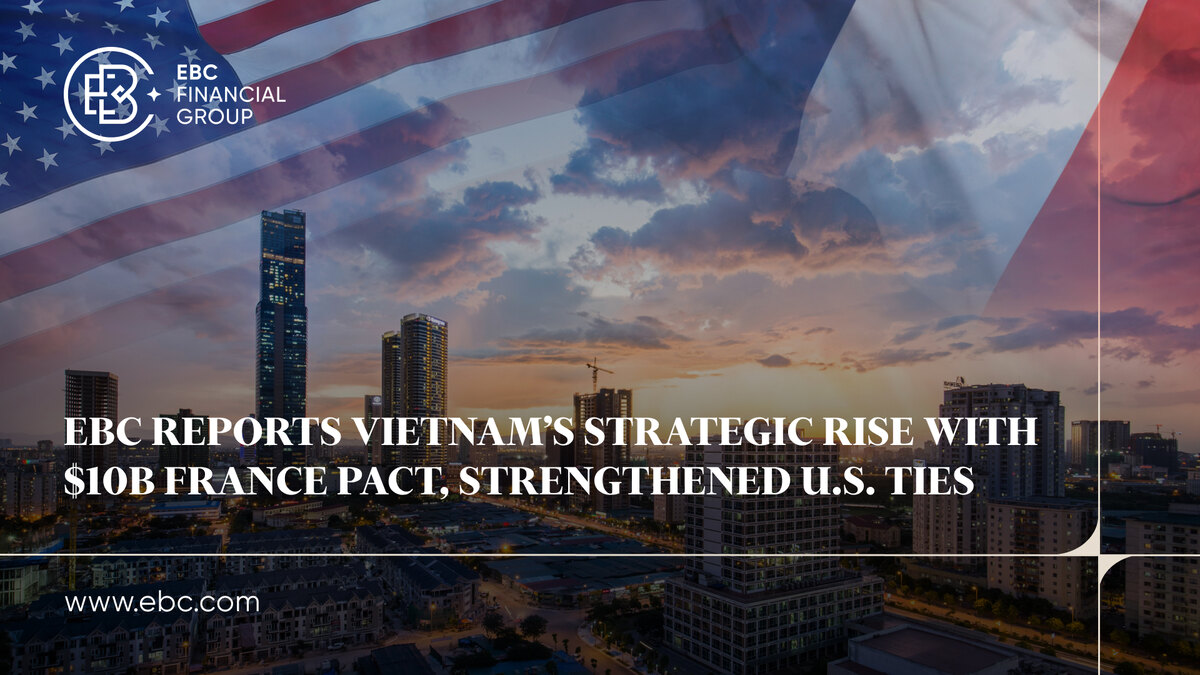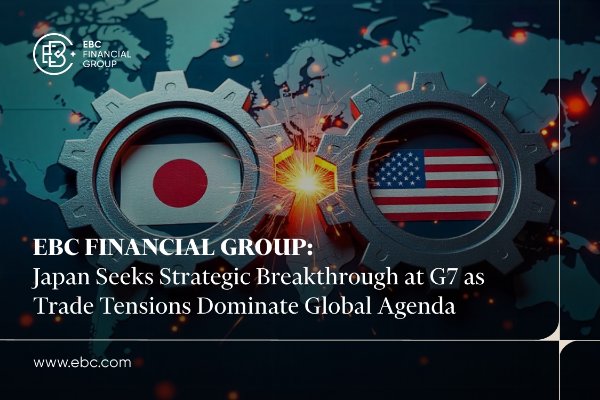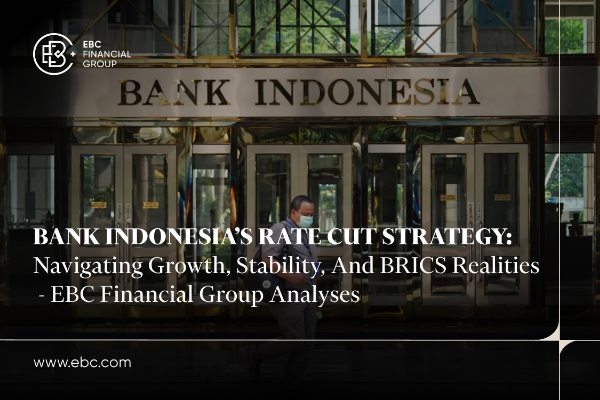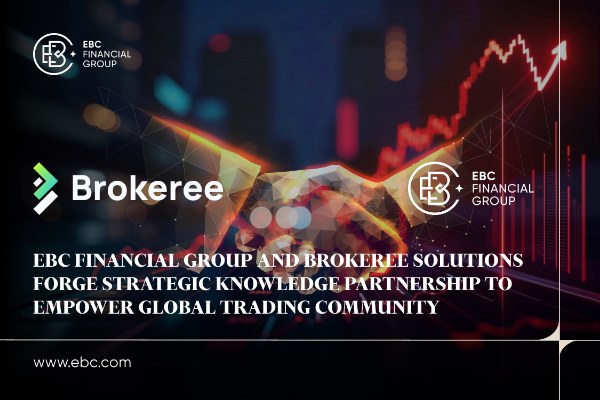Vietnam is rapidly positioning itself as a geopolitical and economic bridge
in a multipolar world. On May 26, during French President Emmanuel Macron's
state visit to Hanoi, the two nations inked over $10 billion worth of agreements
across aerospace, energy, infrastructure, and pharmaceuticals. The announcement
came on the heels of intensified U.S.-Vietnam trade talks—underscoring the
country's rising strategic appeal to both Western blocs.
We at EBC Financial Group (EBC) examine what this diplomatic balancing act
means for global capital flows, cross-border trade strategies, and investor
positioning in a fragmented global economy.

Vietnam–France Pact: A $10 Billion Statement of Intent
The Vietnam–France Leaders' Forum yielded more than 30 commercial agreements,
including key partnerships with Airbus, EDF, and Sanofi. The deals mark France's
largest investment initiative in Vietnam to date, reinforcing Vietnam's appeal
as an investment destination amid ongoing EU diversification strategies.
According to the Vietnam Plus, France ranks as Vietnam's fourth-largest EU
trade partner. Meanwhile, the WTO Center under the Vietnam Chamber of Commerce
and Industry (VCCI) reports that total trade between Vietnam and the EU reached
$68.4 billion in 2024, with Vietnam recording a $35 billion surplus—up from
$28.7 billion in 2023. These new agreements are expected to accelerate Vietnam's
ambitions to become a regional hub for clean energy, advanced manufacturing, and
technology exports.
"This isn't just diplomacy—it's economic positioning," said David Barrett,
CEO of EBC Financial Group (UK) Ltd. "Vietnam is attracting multi-aligned
capital without becoming beholden to any single power bloc. That's a rare
advantage in today's divided global landscape."
U.S.–Vietnam Ties: Expanding Without the Tug-of-War
At the same time, Vietnam continues to strengthen its commercial and
strategic ties with the United States. Key areas of collaboration include
semiconductors, critical minerals, clean energy, and AI-based manufacturing—all
crucial to Washington's broader "China+1" and de-risking strategies.
According to the Office of the U.S. Trade Representative, total goods trade
between the U.S. and Vietnam reached $136.6 billion in 2024, up 19.3 percent
($22.1 billion) from 2023—making Vietnam America's seventh-largest trade
partner, up from twelfth in 2018. Washington has also pledged support for
Vietnam's digital economy through initiatives announced under the U.S.-Vietnam
Comprehensive Strategic Partnership, formalised in late 2023.
"Vietnam has long benefited from its position as a neutral manufacturing hub
amid U.S.-China trade tensions, but that dynamic is shifting. While past
administrations sought to build regional alliances, future U.S. leadership,
particularly under Trump, may view countries like Vietnam less as partners and
more as pressure points in a broader economic agenda." Barrett said.
What This Means for Traders and Markets
As Western powers compete to secure trade footholds in Vietnam, our analysts
highlight three market signals traders should watch:
Currency Volatility: As foreign investment inflows accelerate, the Vietnamese
đồng (VND) could experience increased fluctuations, particularly in anticipation
of policy recalibration or interest rate adjustments.
Infrastructure & Equity Repricing: Large-scale projects in energy and
transport may lead to valuation shifts in local infrastructure, logistics, and
construction stocks.
Sector Rotation Signals: Joint focus by the U.S. and France on
semiconductors, green tech, and pharmaceuticals could buoy Vietnamese companies
in those sectors, especially those with cross-border JV potential or
state-backed expansion plans.
A Rising Hub in a Realigned World
In an era of divided global alliances, Vietnam's calibrated diplomacy
reflects a new model of economic statecraft—one that avoids binary allegiances
while attracting capital from all directions. We see Vietnam's growing relevance
not just as an export story, but as a long-term thesis for investors seeking
resilience, neutrality, and innovation in the Asia-Pacific region.
Disclaimer: This material is for general information purposes only and is not
intended as (and should not be considered to be) financial, investment or other
advice on which reliance should be placed. No opinion given in the material
constitutes a recommendation by EBC or the author that any particular
investment, security, transaction or investment strategy is suitable for any
specific person.







